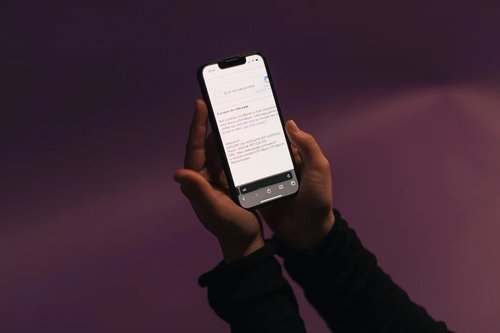Is listening to music at work productive?
May 29, 2020
5 mins


Periodista freelance
The Russian writer Leo Tolstoy said that “music is the shorthand of emotion”. He was right: there are certain melodies that can give us goosebumps, unleash tears or comfort us. Listening to a song at the right time can fix a bad day, help us fleetingly escape reality, or even transport us to another time or place. But what if your mind travels thousands of miles away, yet your body is still sitting at your desk? Does music boost productivity or can it become a distraction?
Does listening to music at work make you less productive?
Investigations into the relationship between music and work productivity began in the 1970s. Since then, diverse studies have emerged, including research at the Middle Tennessee State University in 1977, which stated that listening to music does not favor productivity when carrying out tasks that require complex cognitive processes. More recent research by Takahiro Tamesue of Yamaguchi University in Japan drew similar conclusions. He analyzed the effects of different types of sound on neurological processes and found that the best music to work with is silence.
The subject has generated great controversy and there are as many defenders as detractors. These are their arguments:
THE PROS
Many professionals fill their working hours with music, whether it’s to block out noise or to give them inspiration. Melodies have a role as a stimulant, especially for those working in creative sectors. It can help their workflow in one direction or another: illustrators, graphic designers, and photographers often find music a great source of inspiration.
Music can also play a part in work that goes beyond artistic creation. In fact, the arrival of lockdown and remote working saw the launch of numerous platforms that create playlists to accompany people as they work from home. In general, however, the charm lies in creating your own playlist that suits your needs.
For those who consider music an essential part of their working day, the benefits it brings are reflected on different levels:
Music boosts our dopamine levels
When we listen to music, neurotransmitters such as dopamine are released. This makes us feel happier and can ease built-up tension. If listening to music makes you feel happier and more relaxed, this state of mind will probably be reflected in your relationships with colleagues and in the work atmosphere that is created. If you’re in a good mood while you work, it can improve interpersonal relationships and build a stronger sense of community.
It encourages creativity
Music allows ideas to flow differently: it unleashes your imagination and creativity. It can be a source of inspiration to help you improve the quality of your work, especially if you are in the creative sector.
This is the case for Iñigo, a photographer, for whom music is not merely in the background, but a fundamental part of his creative process. It is one of the resources he uses to get inspired, which is why he always plays music at photography shoots. “It is an extremely important tool to direct the model and to help him or her relax,” he said. Iñigo also believes that music helps him when it comes to editing and laying out photographs, especially to “build the narrative of the story” that he wants to tell.
Judit, a graphic designer, always takes the time to outline the intent of her playlist. “My choice of music depends on the client or the piece I’m designing. When the design needs to be fresh and dynamic, I prefer to hear more lively and joyful rhythms, but for more formal pieces, I select songs with a slower tempo,” she said.
By deliberately choosing to dive into a certain genre, music is a way for Judy to create a different atmosphere.
It helps mitigate noise
When you need to block out background noise to help you concentrate, music is a great ally. For those doing more analytical work, instrumental pieces might help them distance themselves from their immediate environment and pay full attention to the task at hand.
Others drown out external sound by putting a movie soundtrack to their work days. Oriol, a video game programmer, works to the rhythm of Blade Runner, The Martian, or Game of Thrones. He always listens to music while he works, but his goal is not to stimulate creativity. He mainly uses it to distract himself from external noise and to focus on his work. Of course, it must meet one condition: “It has to be something I have already heard, so my brain is not distracted by new songs,” said Oriol.
This explains why music can be a good companion for those who perform repetitive tasks that don’t require intense concentration. It not only blocks out background noise, but it can serve to set the pace of the tasks.
THE CONS
For many, music is not instrumental in their work performance. Other more analytical or scientific profiles, or even managers, seem to prefer silence. Their main tasks are not usually creative, so rather than running with the rhythm and letting their imaginations run wild, they choose to work with the speakers off.
In these professions, listening to music can be detrimental to their work:
It becomes a distraction
Many of us do not find pleasant company in music. In fact, it’s quite the opposite, especially when you have to perform tasks that require particular attention to detail.
Natalia, an account manager at a communications agency, is unable to work listening to music because she simply loves it too much. This sounds paradoxical, but there is an explanation: “I like music so much that it distracts me. It brings back good memories and I accidentally escape. My brain relates it directly to lived experiences, and that makes me not concentrate.”
Some choose to escape the silence with other types of sounds. For example, the sound of rain helps Natalia to focus. “I use playlists with rain and storm effects and work with them in the background. I turn to them especially when I need to prepare innovative client proposals, such as looking for an original name for an event or to imagine its setting,” she said.
It is overly stimulating
Music is one more stimulus that the brain receives, to which it must also pay attention. There are songs that help us relax, but music can also cause stress when the stimuli that the brain must process become excessive.
Perhaps for that reason, silence is the “song” that Kike chooses. He is an educational research psychologist for whom music has no place during the working day. Although he loves music, it does not benefit him in this context: “My job is above all about doing a lot of reading. I need to be able to extract the main ideas from texts to rework them and write new proposals. To do this, I need maximum concentration, absolute silence. I even need my own space,” he said.
You risk isolating yourself
Plugging into your favorite songs might put you in a better mood, but it could also lead to you distancing yourself from the workspace without realizing it. If you disconnect for a long time, you could end up isolating yourself from your peers.
“Without music, life would be blank to me,” said Jane Austen’s heroine Emma. This might be the case, but in a work environment, that blank space may be what we need to help us focus. Others, however, will prefer to fill it with color because without music their work would have a very different dimension. Which side are you on?
Translated by Sunita Maharaj-Landaeta
Photo: Welcome to the Jungle
Follow Welcome to the Jungle on Facebook, LinkedIn, and Instagram, and subscribe to our newsletter to get our latest articles every day!

More inspiration: Productivity & tools

Goal setting: How to bounce back when you feel like a failure
The big F word ... Failure. We all face it, but here’s how to make it your secret weapon for success.
Dec 18, 2024

Productivity boost: Why mental health outshines long hours
Long hours don’t equal better work. Discover how mental health support can unlock productivity and time efficiency in the workplace.
Nov 28, 2024

10 fun ways people are using AI at work
While many use AI for basic tasks like grammar checks or voice assistants, others are finding innovative ways to spice up their work days.
Nov 05, 2024

12 Slack habits that drive us crazy
Slack is a top messaging platform, but coworkers can misuse it. Over-tagging and endless messages can make it frustrating ...
Oct 16, 2024

10 CareerTok creators you should be following
Looking for career advice? CareerTok has quick tips from real experts on interviews and job offers.
Sep 25, 2024
The newsletter that does the job
Want to keep up with the latest articles? Twice a week you can receive stories, jobs, and tips in your inbox.

Looking for your next job?
Over 200,000 people have found a job with Welcome to the Jungle.
Explore jobs